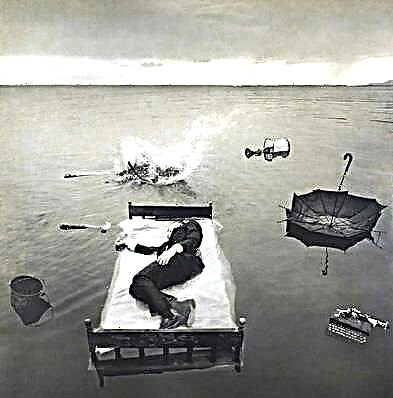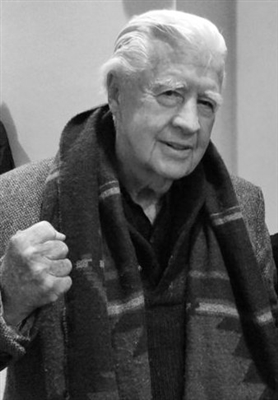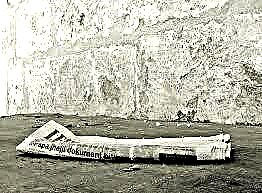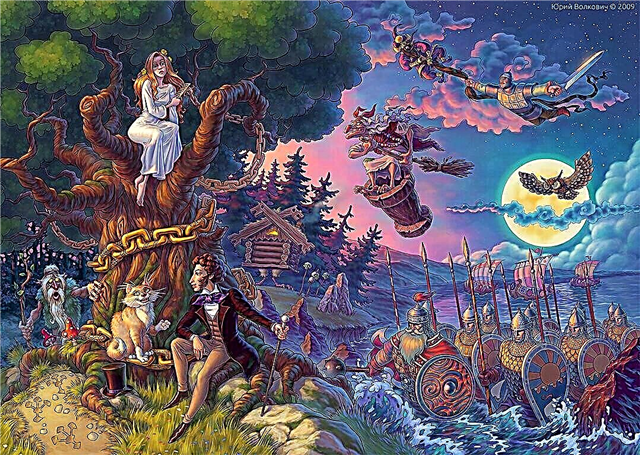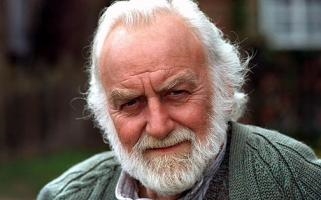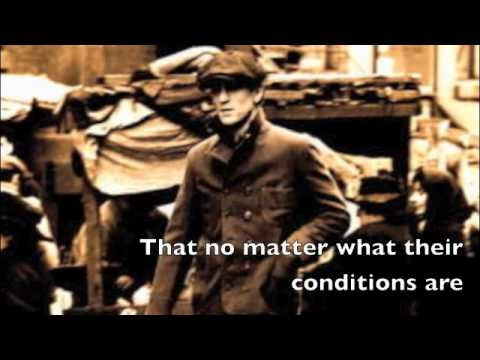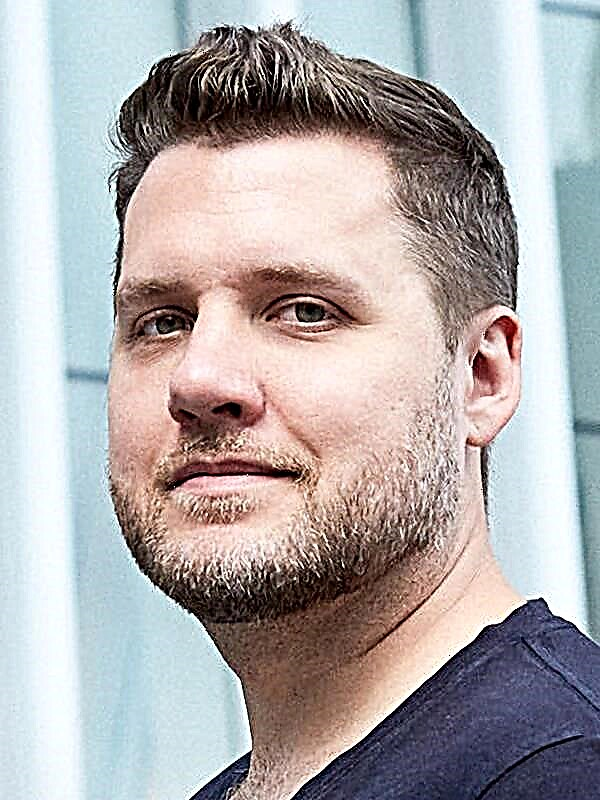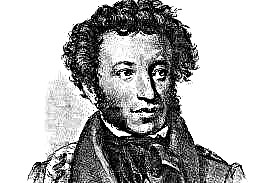The protagonist of the book is a young man named Johnny. He tried to study, to be good, listened to his elders, did what he was told, and soon began his career in a large company.
Johnny works at the initial position in a typical office, is engaged in boring monotonous accounting work with papers and numbers, is often late until late, he has a strict boss who constantly throws up work. He begins to feel that he is wasting his life and all the advice he was given was incorrect. "What am I doing here?" He asks himself. "This is a dead end." "There must be a better way."
And then one day a fairy appears, which gives Johnny six lessons on how to work successfully and enjoy it.
Lesson 1
The first thing Johnny asks the fairies is, “Is it worth sticking to the plan?”
The fact is that in his childhood he loved drawing and art history. But his father told him that you can’t approach the career irresponsibly, you need to have a plan, lay the foundation to have a choice in the future and ... offered to become an accountant. Johnny didn't like it, but it was “part of the plan,” and he agreed.
Then Johnny got into a meeting with an employment consultant. He asked who Johnny sees himself in 10 years. He replied that he would like to develop video games, engage in advertising or work in a museum, in general, to do something creative.
The consultant replied that Johnny needed a plan then. It is worth starting with working in a good company, for example, as an intern, to understand the basics. Then use the accumulated experience to transfer to another company, gradually move towards your dream, and after 10 years, perhaps come closer to it. Johnny agreed and went to work for a large company.
There he was met by an employee of the personnel department and began to bombard with standard questions - who do you see yourself in 5 years, what is your biggest flaw, what taste would you have if you were soup. And then with stories about the fact that they need active people who can think outside the box, take on vital tasks, increase efficiency and profitability, work in a team, focus on the client and so on. Where Johnny ended up in the result, we already know.
And then the fairy taught the first lesson:
There is no plan.
Of course, you can sit and dream that at 21 you will be here, at 31 there, and at 41 somewhere else. That after A follows B, then C and so on. But it does not work! Life is not a solution to an algebraic problem. Rather, it looks like an algebraic task, invented by Salvador Dali: Or it can lead to Y, then to I, and then generally turn into a chicken quesadilla.
As an example, the fairy cited the personnel officer who hired Johnny. He was fired a year ago. At first he sat with the children, then started a blog for the parents of twins and as a result began to earn even more than before, doing his favorite thing. He did not expect or plan any of this.
It's nice to think that you can plan every step and be where you dream. But this is a fantasy. The world will radically change in 10 years. Your work may be outsourced to India, and your industry may disappear altogether.
And you too will change. You may discover a hidden talent in yourself, or fall in love, or go to Tahiti. But if you continue to adhere to the plan, even when you realize that it is stupid, then turn into the next faceless corporate employee who thinks that he "keeps his opportunities open", but in fact has long been overgrown with cobwebs in his corner, and no one notices him.
You need to make smart decisions. But they can be taken for two reasons.
- Instrumental - because you think this can lead to something else, whether you like it or not.
- Fundamental - because you consider something valuable no matter what it may lead to.
The secret is that instrumental solutions usually do not work. They are too complex and unpredictable. You never know what will happen.
Most successful people make certain decisions for fundamental reasons. For example, they study art history instead of accounting because it really captivates them. They are not fools, they are enlightened pragmatists.
Lesson 2
One day, Johnny and his colleague Yukko receive similar tasks. Yukko finishes his work in an hour and leaves for lunch. And Johnny does not succeed. When the fairy appears again, he begins to tell her how he will work on his weaknesses, try, enroll in a huge number of courses, etc., in order to work better.
The fairy answers this:
You need to think about your strengths, not weaknesses.
Successful people use their strengths and try to get around weaknesses. You will never achieve anything while focusing on your weaknesses and starting to use your strengths.
What do you always do well, that gives you energy, but does not take it, which immerses you in a state of flow? (A stream is a state of mind in which a person is completely immersed in a lesson. It is characterized by a feeling of energetic focus, full involvement and success).
Johnny replies that he can draw for hours, that he is often asked for advice when developing new ideas, that he likes to learn other people's experiences.
Fairy understands that Johnny is in a completely wrong place, says that he urgently needs to be pulled out of there, and offers to go to marketing.
Lesson 3
In marketing, Johnny immediately joined the team that is developing a proposal to increase sales of shoes for the client. There, instead of developing new ideas, Johnny begins to draw in a notebook, do various stupid things and say that he does what he is good at.
Then a fairy appears and says that Johnny is heading for disaster. Until he breaks the wood, she wants to teach him a third lesson.
This is not about you.
You need to think not about yourself, but about the client (or employer), use your strengths for work, solving client problems.
Successful people improve their lives by improving the lives of others. They help customers solve problems, give them something about the lack of which they did not even realize. One has to look outward, not inward, on one's ego. The most valuable people in any job show the best in others. They help the boss look good. They help colleagues succeed.
As a result, Johnny begins to work with the team, comes up with a great idea and is assigned to a new project, where he also invites his accounting colleagues.
Lesson 4
They work for three weeks, can’t come up with anything suitable and cause a fairy. She asks what the problem is. Is the task unclear? Not enough resources? Not enough qualifications? The guys answer that everything is clear, there are resources, and they have the necessary qualities. Fairy concludes that the team is full of talent and gives a fourth lesson.
Perseverance defeats talent.
Perseverance brings great results. People who achieve a lot often continue to do something when everyone else has quit. They use their head, their heart and ... their ass. For example, athletes and musicians. They are practiced, practiced and practiced. Therefore, they succeed even if they choose a different career.
The greatest power in the universe is a compound percentage. Usually they talk about it in relation to money. But this also works in the case of perseverance. Small continuous improvements lead to even more persistence and further improvements. Lack of perseverance also works, but in the opposite direction.
Talent is important.But the world is full of talented people who lack perseverance - who did not do business for long, gave up too early and thought that they could win only at the expense of talent. And at this time they were left behind by less talented, but more persistent people.
That is why intrinsic motivation is so important - to do things not to get an external reward like money or a new position, but simply because you like to do it. The more internal motivation you have, the greater the likelihood that you will be persistent and succeed.
In parting, the fairy gives one more tip: the best way to advance in solving the problem is to go in for sports.
Lesson 5
The guys go for a run, and there Johnny comes up with a great idea. In order for the idea to be accepted faster and appreciated, they decide to go with it to the director, bypassing the authorities. But the director carries the idea to smithereens, the boss scolds Johnny, and the guys are returned from marketing back to accounting.
Of course, they call a fairy to help, and she gives them a fifth lesson.
Make great mistakes.
Too many people spend time avoiding mistakes. They are so afraid of making mistakes and being wrong that they never try anything new or do nothing at all. But this is a bad way to success.
Successful people make spectacular mistakes, make loud failures. They try to do big and important things, but even if they are wrong, they become a little better and approach perfection.
But you need not just take risks, make random mistakes and thoughtless mistakes. You need to make "good" mistakes. Mistakes that come from great aspirations, attempts to do something that no one else has done.
The fairy also says that Johnny’s idea was quite interesting, the director liked it and was a “right” mistake. But the decision to go directly to the director bypassing the authorities was stupid.
The guys decide to work on the project a little more. As a result, they are developing a new idea that everyone likes.
Lesson 6
The guys go to celebrate the victory in a restaurant where a fairy appears and gives the sixth lesson.
Leave a mark.
As you get older, you will look back and ask yourself a bunch of questions - did I bring something to this world, did something outstanding, did my existence make sense?
The problem is that many people don’t like the answers to these questions when they get closer. But then it’s too late to change anything. So ask these questions now.
It is not necessary to immediately try to stop all wars or repair the ozone layer (although if you feel called, it’s worth a try). But you should think about the purpose of your existence, to realize that life is not endless, and that it is better to use your limited time to do something outstanding, that makes sense.
The other five lessons are important, but truly successful people use them to serve something more than themselves. They make their companies, communities, families a little better than they were before.
In a way, that is what it means to be alive.

